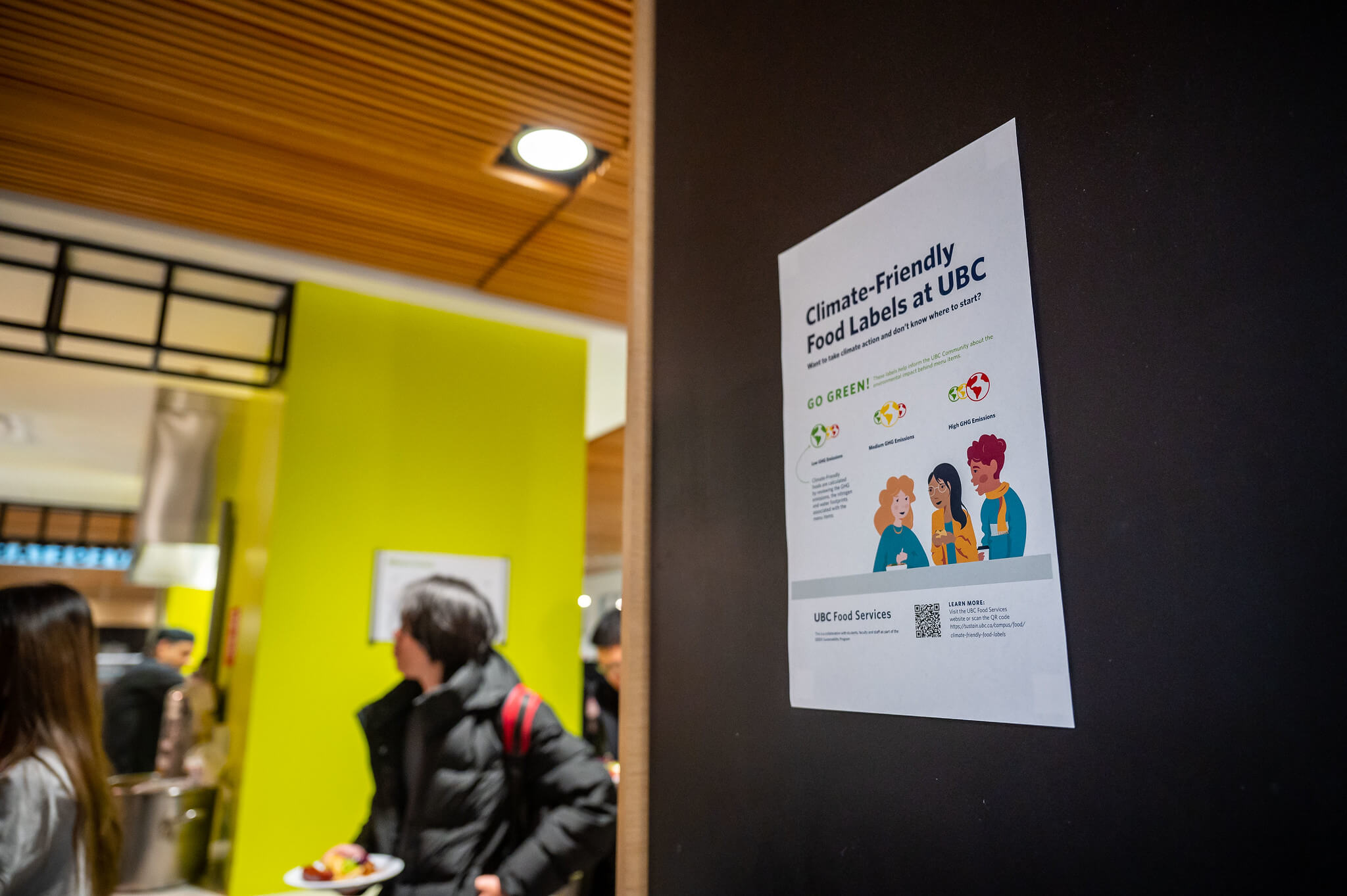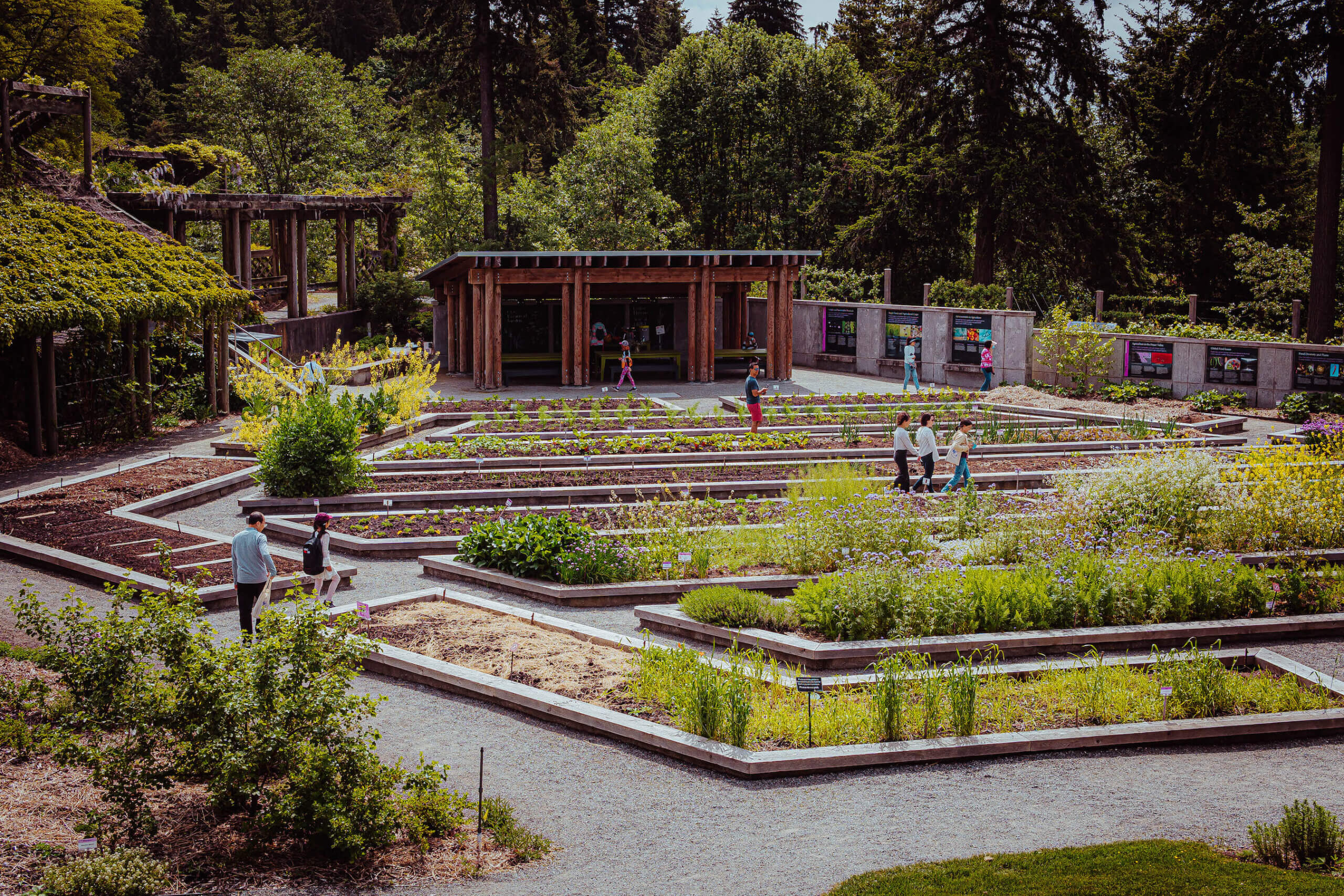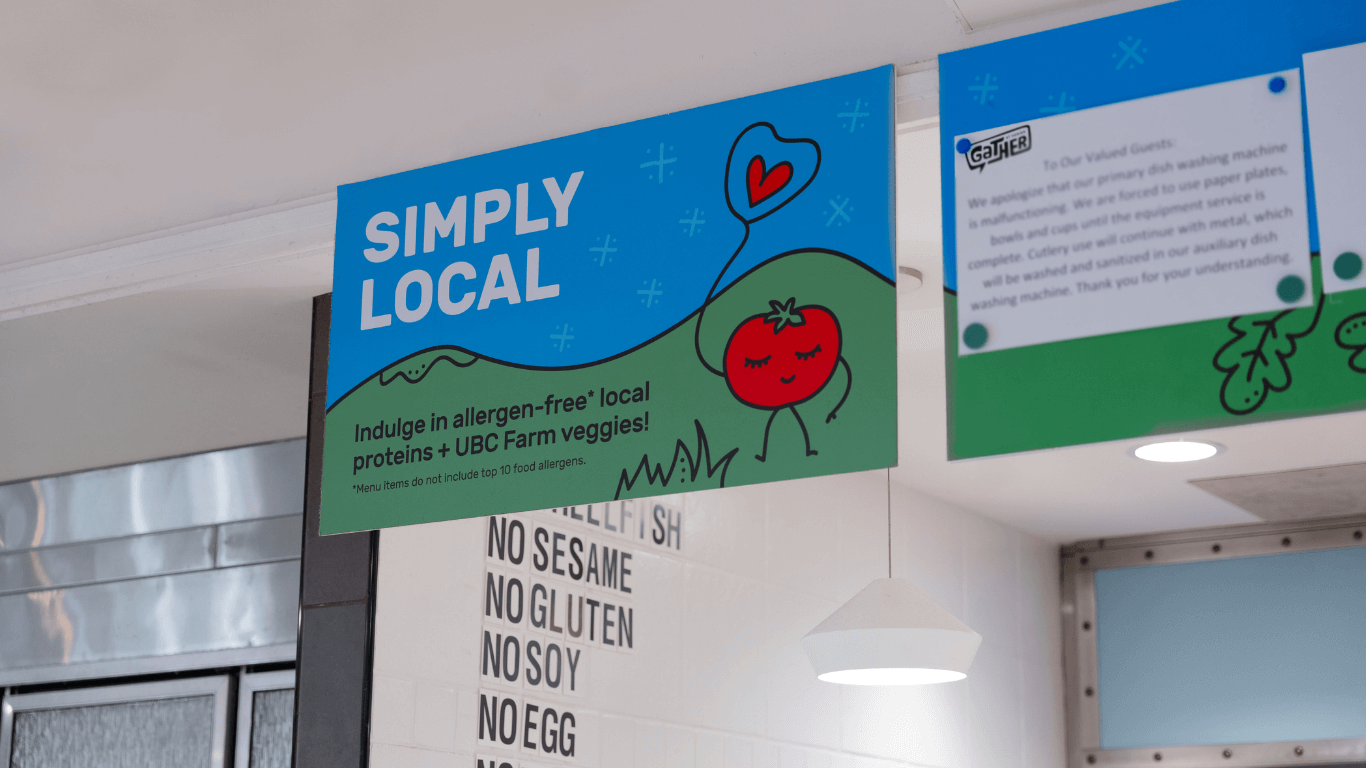If you’ve dined at UBC, you may have noticed a label showing how climate-friendly your meal is.
A major driver of the climate crisis is food systems; they contribute to a third of global Greenhouse Gas (GHG) emissions. Food systems on UBC’s Vancouver campus account for just over 21% of UBC’s overall GHG emissions. To address this, UBC has set a target to achieve a 50% reduction in food systems emissions by 2030. This number aligns with UBC's Climate Action Plan 2030 food systems reduction goals and the Paris Agreement goal to limit global warming to 1.5°C.
Sustainability at work
UBC is transforming its food systems to combat climate change. One example is the addition of Climate-Friendly Food (CFF) labels to the university’s residence dining hall menus.
The CFF labels provide campus diners with clear information about the environmental impact of each dish. They show how much GHGs are emitted to produce the meal’s ingredients. Menu items with the CFF label displaying the largest green earth on it means that the meal generated less GHG emissions and used less water, land, and nitrogen than other items on the menu.
As demand for more sustainable food options grows, the labels empower the campus community to make informed decisions—which ultimately promotes a climate-friendly food system.
UBC's Climate-Friendly Food labels
Menu items with the green label are the most climate-friendly. A yellow label is a good option and a red label is the least climate-friendly choice.

Climate-friendly food choices
- Eat plants! Plant-based meals generate less GHG emissions. At UBC, 55% of the food served in our dining halls are plant-based. See some plant-based food options at UBC.
- Look local! Foods that are grown or prepared locally benefit the environment. Almost 50% of our food ingredients are purchased from local producers. The UBC Farm and local suppliers supply us with 50,000 lbs of fresh produce per year.
- Go green! Choose menu items with the green CFF label; this meal produces the fewest greenhouse gas emissions.
About UBC’s CFF labels: campus as a living lab
- UBC is the first Canadian university to take on a project of this scale.
- UBC’s Climate-Friendly Food Labels project was a research collaboration with the SEEDS Sustainability Program in partnership with UBC Food Services, UBC’s Climate-Friendly Food System Action Team, and the Institute for Resources, Environment and Sustainability. Learn more
- 775 menu items were reviewed to quantify environmental footprints: GHG emissions, land use footprint, embedded nitrogen, and water use associated with the production of each ingredient.
- The researchers used the Cool Food Calculator, which provides GHG emission data based on life-cycle assessments for major food categories.
A commitment to sustainability
UBC Food Services is committed to becoming a leader in food sustainability as part of our vision and values. We aim to compost all food scraps and reduce single-use items. Our menus feature an abundance of plant-based, climate-friendly options and sustainable, Ocean Wise seafood. Learn more
Credits: Photo by Paul Joseph, UBC Brand & Marketing | Graphic design of CFF labels by Helen Eady, Creative Co.







